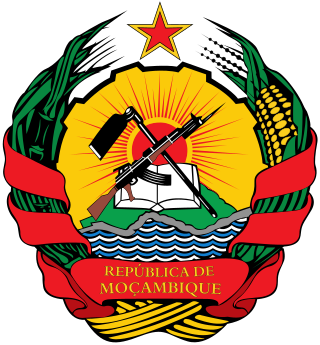
Visitors to Tonga must obtain a visa unless they come from one of the visa exempt countries or countries eligible for a Visa Waiver on Arrival. Visa applications must be sent to the Principal Immigration Officer in Nuku'alofa. All visitors must hold a passport valid for 6 months.

The visa policy of South Africa is how the South African government determines who may and may not enter South Africa. Visitors to South Africa must obtain a visa from one of the South African diplomatic missions unless they come from one of the visa-exempt countries, in which case they get a "Port of Entry Visa". Visitors who require a visa must apply in person and provide biometric data.

Visitors to Senegal require a visa unless they come from one of the visa exempt countries. Visitors must hold passports that are valid for at least 6 months from the date of arrival.

Visitors to Nigeria require a visa unless they come from one of the visa exempt countries. All visitors must hold a passport valid for 6 months.

The Republic of Rwanda, a member of the East African Community, allows citizens of all countries that are not visa-exempt to obtain a visa on arrival. In addition, they may also obtain an e-Visa online before departure.

Visitors to Pakistan typically must obtain a visa online or in certain cases from one of the Pakistani diplomatic missions.

Visitors to Angola must obtain either a visa in advance from one of the Angolan diplomatic missions or a pre-visa online, unless they come from one of the visa exempt countries.

Visitors to Botswana require a visa unless they come from one of the visa exempt countries.

Kenya has abolished visa requirements for all foreign visitors from 1 January 2024, and instead implemented an Electronic Travel Authorisation (eTA) system.

Mozambique allows most countries that are not visa exempt to obtain a visa on arrival. However, nationals of certain countries must obtain a visa online or from one of the Mozambican diplomatic missions around the world before being allowed into the country.

Visitors to the Democratic Republic of the Congo must obtain a visa from one of the Democratic Republic of the Congo diplomatic missions unless they are citizens of visa-exempt countries, citizens who can obtain a visa on arrival or citizens eligible to obtain an e-Visa.

Visitors to Laos must obtain a visa from one of the Laotian diplomatic missions unless they are citizens of one of the visa-exempt countries or citizens eligible for a visa on arrival or an e-Visa. All visitors must hold a passport valid for 6 months.

Visitors to Cuba must obtain a visa before travel or a tourist card from one of the Cuban diplomatic missions, travel agencies or authorized airlines unless they come from one of the visa exempt countries. Electronic visa is also available.

Visitors to Honduras must obtain a visa from one of the Honduran diplomatic missions unless they come from one of the visa exempt countries. All visitors must hold a passport valid for 3 months.

All visitors to Djibouti must obtain either a visa on arrival to Djibouti, an electronic visa online or a visa from one of the Djiboutian diplomatic missions prior to arrival in Djibouti, unless they come from one of the visa exempt countries mentioned below.

Visitors to Ivory Coast must obtain a visa from one of the Ivorian diplomatic missions or online unless they come from one of the visa-exempt countries. All visitors must hold a passport valid for at least 6 months.

Visitors to Ghana must obtain a visa from one of the Ghanaian diplomatic missions unless they come from one of the countries or territories that are either visa exempt or whose citizens may obtain a visa on arrival.

Visitors to Guinea-Bissau must obtain a visa, either on arrival or in advance at one of the Guinea-Bissau diplomatic missions, unless they are nationals of a visa-exempt country.

Visitors to Sierra Leone must obtain an e-Visa unless they are citizens of one of the visa-exempt countries or citizens who may obtain a visa on arrival.

The British Overseas Territories maintain their own entry requirements different from the visa policy of the United Kingdom. As a general rule, British citizens do not have automatic right of abode in these territories.





















